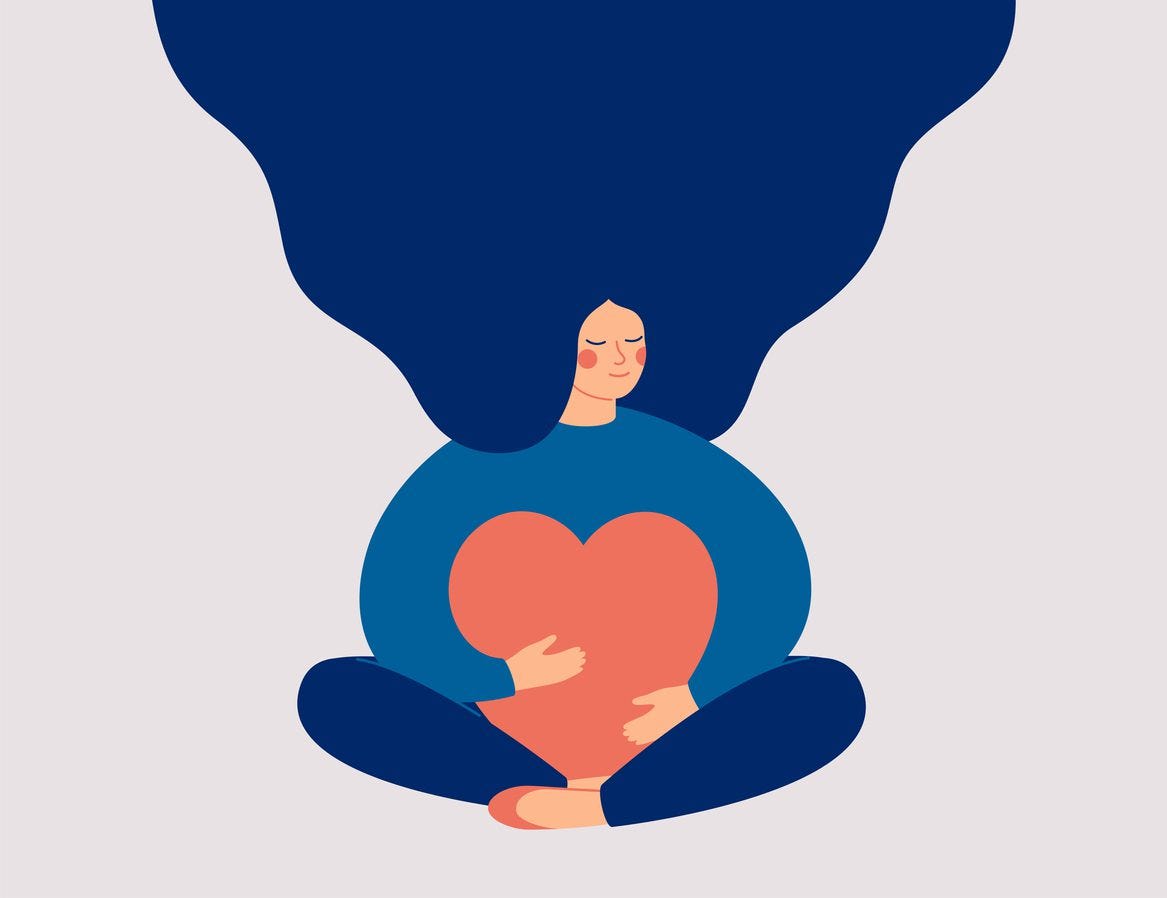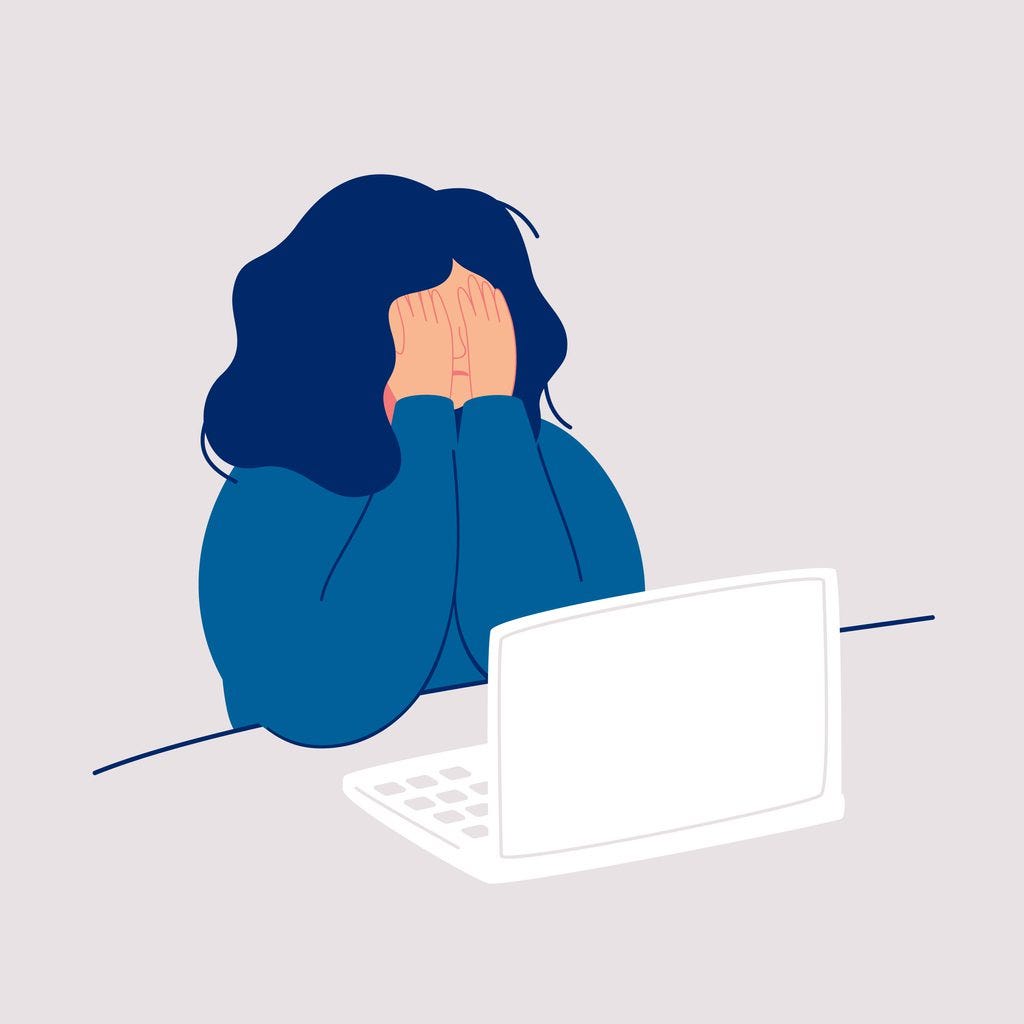How to Find Emotional Stability in an Uncertain World
Medically Reviewed by Dr. Parris Kidd
On a scale from 1 to 10, how anxious are you feeling right now?
Do you feel like everything’s up in the air and you can’t make any solid plans? Are you living in a constant state of worry and stress?
Perhaps a crisis at home or work has completely disrupted your daily schedule, creating a variety of lifestyle changes that have impacted your focus, sleep, and mood. Or, maybe the unique stressors of these uncertain times have impaired your ability to cope, making you feel completely overwhelmed most of the time. Though you can’t stop what’s happening around the globe, you can change what’s going on inside your brain to prevent fear from dominating your life.
If you need some relief from all the chaos or uncertainty in your life, here are 10 helpful ways to dial back the stress and fear…
10 Ways to Help You Find Emotional Stability & Overcome Fear in an Uncertain World

1. Start Out Positive
Begin each morning by saying something like, “Today is going to be a great day!” Such a simple sentence can cause your brain to look for ways to fulfill that hopeful statement. It also establishes a healthy thought pattern that you can continue throughout the day.
When you focus on positive affirmations, your brain can help you discover ways to turn them into reality. This simple strategy can make a significant difference in your life, so do it first thing in the morning to set the tone for your entire day.
2. Mental Hygiene

You can disinfect your thoughts by exterminating the ANTs (automatic negative thoughts) that steal your happiness. Anytime you feel sad, mad, nervous, or stressed, write down what you’re thinking and then challenge that ANT. When you stop believing every fearful thought you have, you can start to regain control of your life.
3. Healthy Fears
During hectic, tragic, or unpredictable seasons of life, it’s completely normal to feel stressed or worried. It’s also natural to have fears or occasional feelings of anxiousness.
Not all fears are bad; appropriate levels of worry can keep you sharp and safe. In fact, having a healthy fear of potentially harmful things can save your life. That may be why the “don’t worry, be happy” types – like those who crowd Florida’s beaches during Spring Break – tend to be the earliest to die from accidents and preventable illnesses.
4. Just Breathe
Whenever you feel worried, frustrated, angry, or tense, consider doing a deep breathing exercise. Take a deep breath, hold it for one to two seconds, and then slowly exhale for about five seconds. Do this 10 times and you should start to feel very relaxed, perhaps even a little sleepy.
It sounds so simple, but breathing is essential to life. When you slow down and become more efficient with your breathing, you may find that your problems aren’t as dire as you thought they were before you started the exercise.

5. Visit a Haven
Choose a haven – a place you can imagine with all your senses. If it’s the beach, visualize the ocean, feel the sand beneath your feet, and the warm sun on your skin. Your haven can be any real or imaginary place where you feel comfortable.
Begin to envision yourself not as you currently are, but as you want to be. Spend at least 20 minutes a day on this refueling, life-changing exercise. You’ll be amazed at the results.
6. Avoid Alcohol
Frequent consumption of alcohol is associated with lowered brain volume. The functional consequences of this effect can be life-altering in their scope.
Many people use alcohol to calm their worries, but this coping strategy can significantly backfire. Alcohol’s impact on health is serious: though well known to harm the liver, it also can damage the heart, lungs, and pancreas. It also affects mood, which can make what’s going on in your life or the world seem even gloomier.
7. Outdoor Activities
Engaging in outdoor activities is important for everyone. Exercise can increase blood flow¹ to deliver oxygen and other positive nutrients to the brain. Physical activity has also been associated with improved mood and a more optimistic outlook on life.
Whether you enjoy hiking, biking, or horseback riding, being outdoors has an overall positive effect on vitality. Walking can help clear your mind, improve your mood, and burn some calories all at the same time.
8. Tea Time
Drinking a cup of warm tea can help relieve stress and lift your spirits. Many teas are low calorie, sugar-free, high in antioxidants, and low in caffeine.
Some decaffeinated teas can help you feel more at ease. For centuries, chamomile tea has been hailed for its calming effects. This herbal tea helps promote relaxation and can help alleviate the stresses of the day, so you can turn off your brain and get some quality sleep.
9. Turn Off the News

Obsessively scrolling through news sites on the internet also can fill you with fear. In fact, watching negative news can increase both anxious and sad moods. Minimize your exposure to the news by establishing time limits and stop watching TV at least an hour before you go to sleep at night.
10. End the Day Well
At night, ask yourself, “What went well today?” Even if you’re struggling with emotions, worried about finances, or having relationship issues, there’s sure to be at least one good thing that happened earlier in the day.
Right before bed, write down 3 things that went well during the day. Train your brain to review the positive events of the day and create your own nightly highlight reel. It will help you sleep better, which will enhance your mood and energy levels the next day.
Research has shown that people who did this exercise were happier and less depressed at 1-month and 6-month follow-ups than at the study’s outset. In a 2017 study,² this simple exercise was found to help people in stressful jobs develop a more positive sense of well-being. This easy activity can help you end each day on a positive note.
Found, Emotional Stability
These are just a few of the proven techniques you can use to reduce the stress and fear in your life. Try these tips and see which ones work best for you. Then, feel free to share them with your friends and family.
At BrainMD, we’re dedicated to providing the highest purity nutrients to improve your physical health and overall well-being. For more information about our full list of brain healthy supplements, please visit us at BrainMD.
These statements have not been evaluated by the FDA. This content is for informational purposes only. It is not meant to substitute for medical or healthcare advice from a physician, nor is it intended to diagnose, treat, cure, or prevent any disease. Consult your healthcare provider before beginning a new health regimen.
References:
- Mulser, L., & Moreau, D. (2023). Effect of acute cardiovascular exercise on cerebral blood flow: A systematic review. Brain Research, 1809, Article 148355. https://doi.org/10.1016/j.brainres.2023.148355
- Rippstein-Leuenberger, K., Mauthner, O., Sexton, J. B., & Schwendimann, R. (2017). A qualitative analysis of the Three Good Things intervention in healthcare workers. BMJ Open, 7(5), e015826. https://doi.org/10.1136/bmjopen-2017-015826
- This Is What You Need to Know About the Standard American Diet! -
- What Are the Pros and Cons of Western vs. Eastern Medicine? -
- Why Experts Say You Should Take Vitamin C, Vitamin D3 and Zinc -
- These Are Some of the Best Natural Herbs for Energy -
- What Are the Top Health Benefits and Types of Saunas? -



